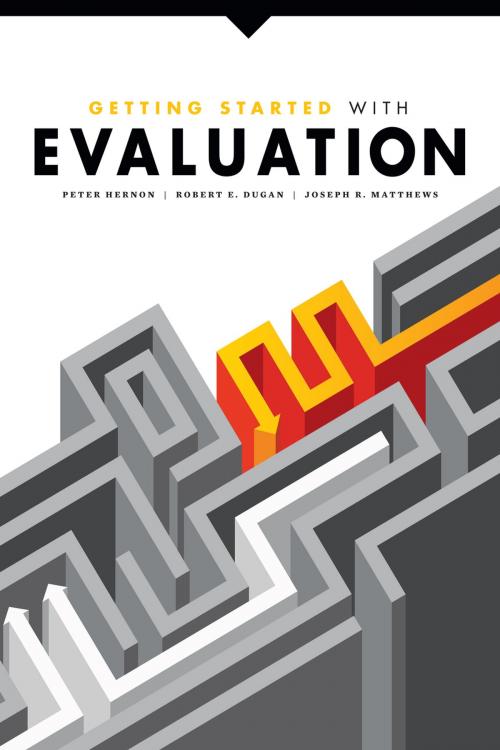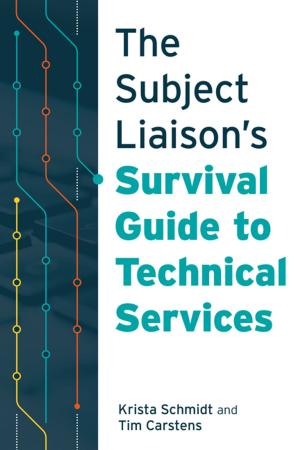Getting Started with Evaluation
Nonfiction, Reference & Language, Language Arts, Library & Information Services, Reference| Author: | Peter Hernon, Robert E. Dugan, Joseph R. Matthews | ISBN: | 9780838996836 |
| Publisher: | American Library Association | Publication: | January 1, 2014 |
| Imprint: | ALA Editions | Language: | English |
| Author: | Peter Hernon, Robert E. Dugan, Joseph R. Matthews |
| ISBN: | 9780838996836 |
| Publisher: | American Library Association |
| Publication: | January 1, 2014 |
| Imprint: | ALA Editions |
| Language: | English |
Everyone agrees that evaluation of library services is essential, but without a background in research it can be a challenge to apply abstract concepts such as strategic planning, evidence-based decision making, and accountability to real-world situations. Finally library managers have a workbook to help them master key concepts of service quality assessment, offering directed exercises and worksheets to guide them. Firmly rooted in practical application, this book Presents an overview of evaluation and the types of metrics, linking them to strategic planning and infrastructure Examines qualitative versus quantitative measures Shows how to decide which metrics are relevant to one’s own institution, covering benchmarking, best practices, peer group filters, and those metrics that offer a high return on investment Includes pointers for launching and maintaining successful library evaluation through flexibility and smart delegation among library staff Offers advice on marshaling data to effectively communicate the value and impact of a library and its services, no matter the audience Complete with a detailed list of sources for metrics and concrete examples of evaluation in practice, this workbook will be both valuable and immediately useful to managers at academic and public libraries, as well as to library trustees and others interested in assessing service quality.
Everyone agrees that evaluation of library services is essential, but without a background in research it can be a challenge to apply abstract concepts such as strategic planning, evidence-based decision making, and accountability to real-world situations. Finally library managers have a workbook to help them master key concepts of service quality assessment, offering directed exercises and worksheets to guide them. Firmly rooted in practical application, this book Presents an overview of evaluation and the types of metrics, linking them to strategic planning and infrastructure Examines qualitative versus quantitative measures Shows how to decide which metrics are relevant to one’s own institution, covering benchmarking, best practices, peer group filters, and those metrics that offer a high return on investment Includes pointers for launching and maintaining successful library evaluation through flexibility and smart delegation among library staff Offers advice on marshaling data to effectively communicate the value and impact of a library and its services, no matter the audience Complete with a detailed list of sources for metrics and concrete examples of evaluation in practice, this workbook will be both valuable and immediately useful to managers at academic and public libraries, as well as to library trustees and others interested in assessing service quality.















